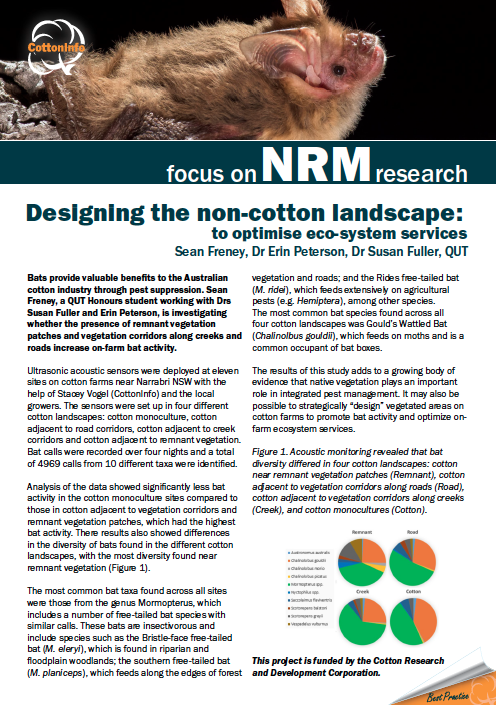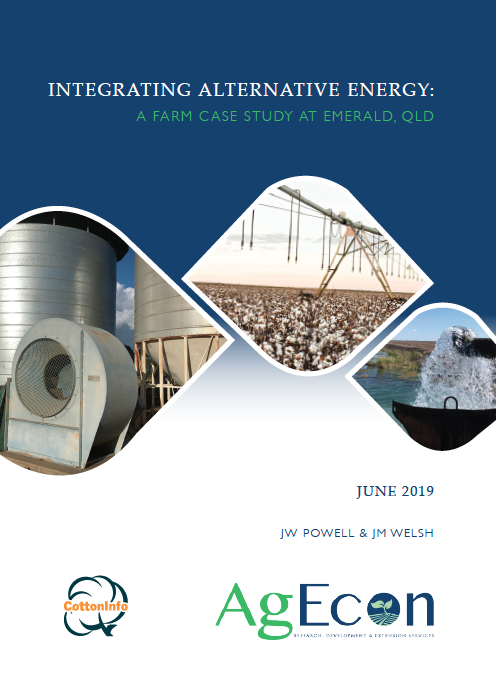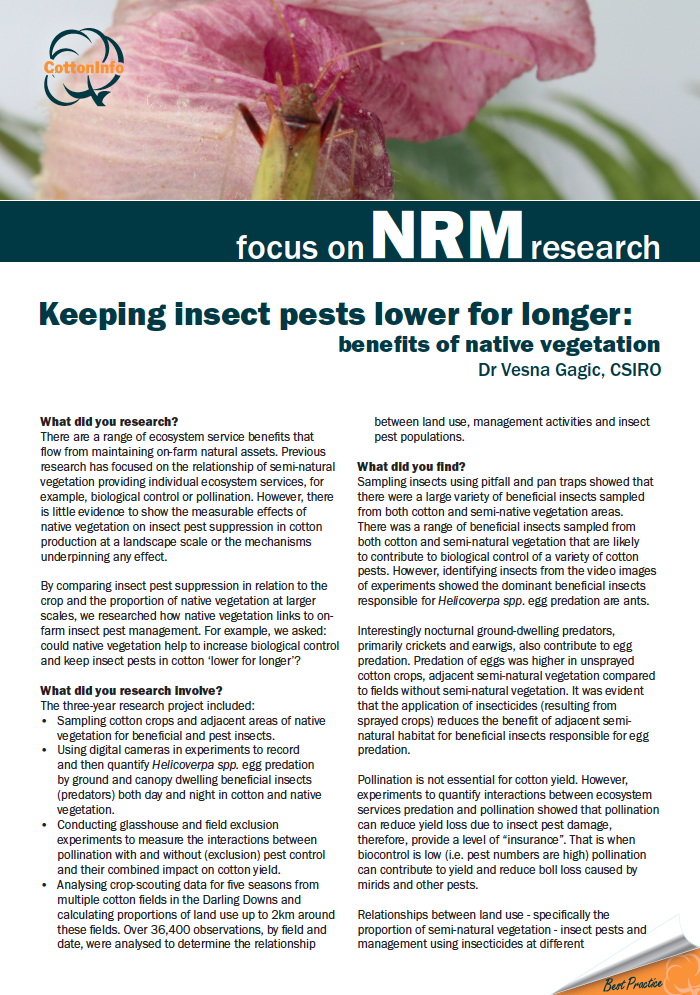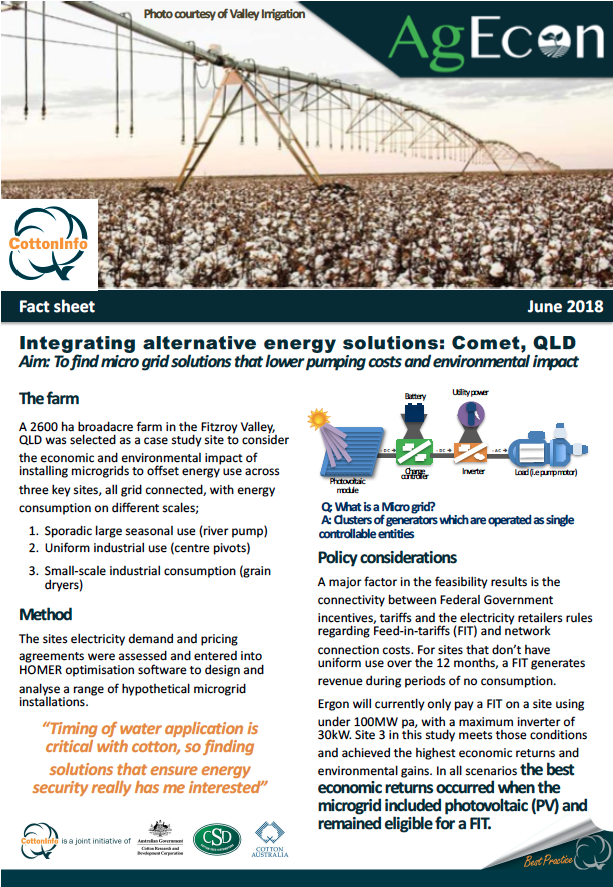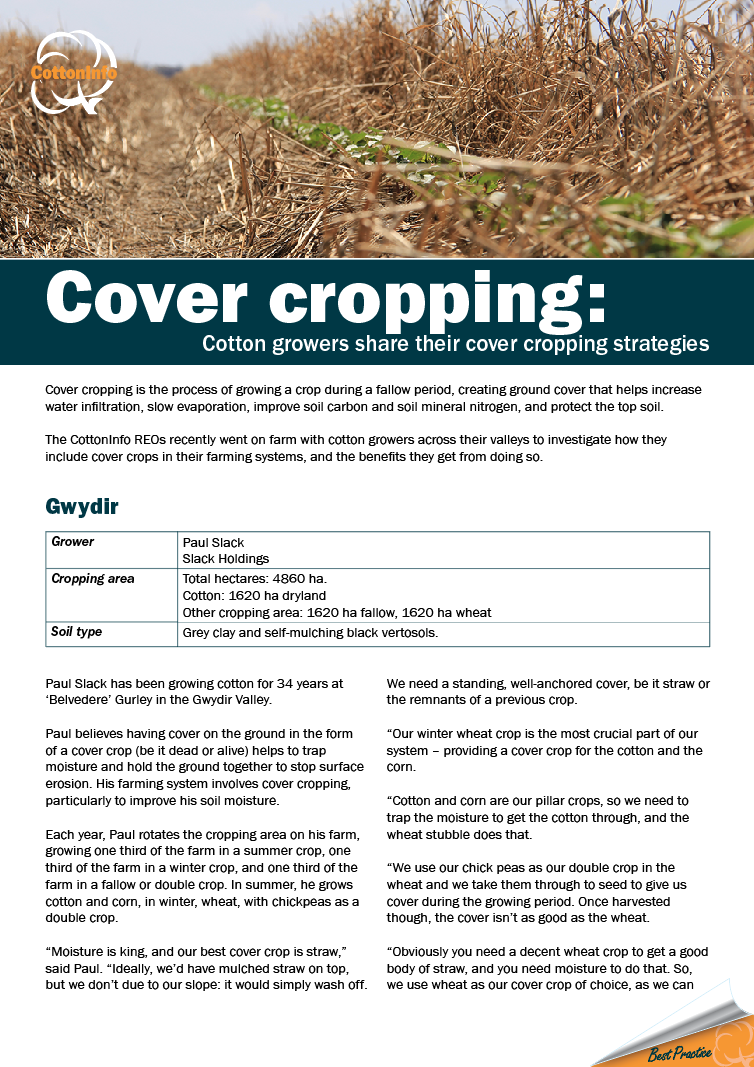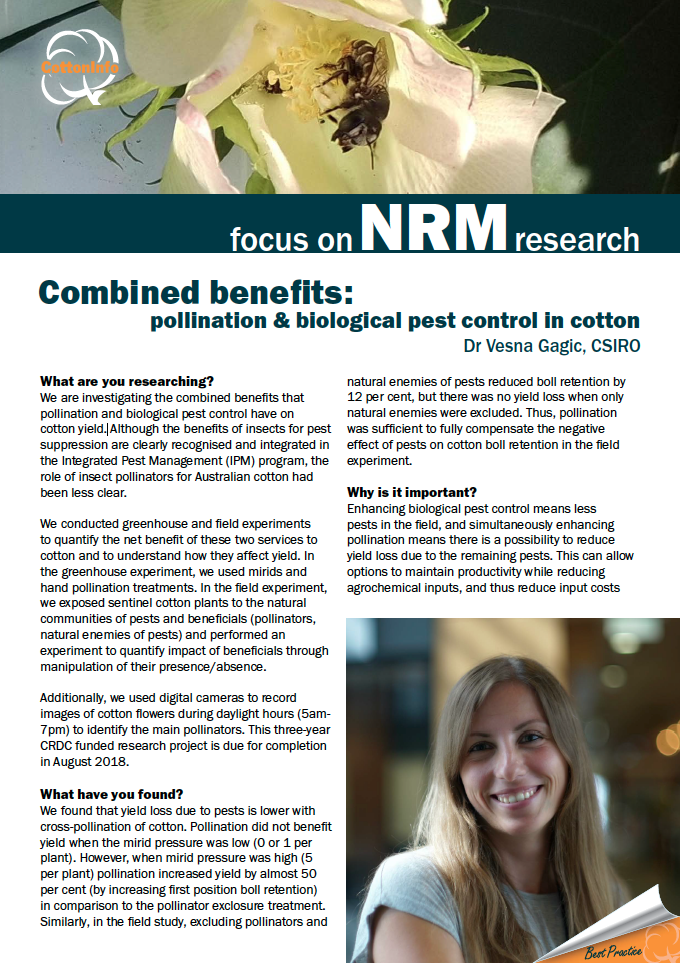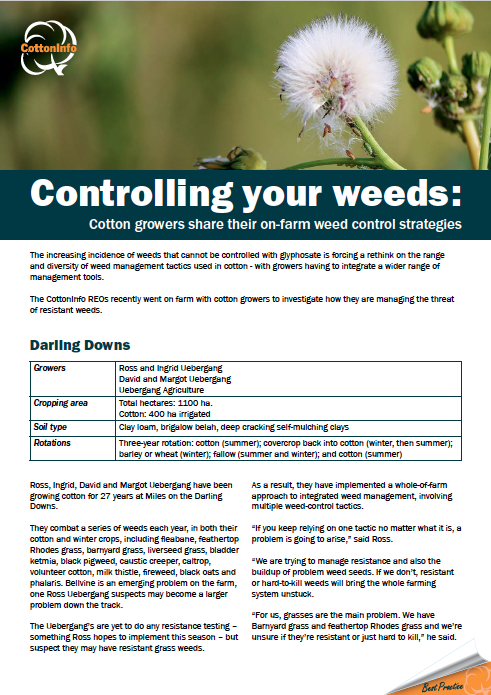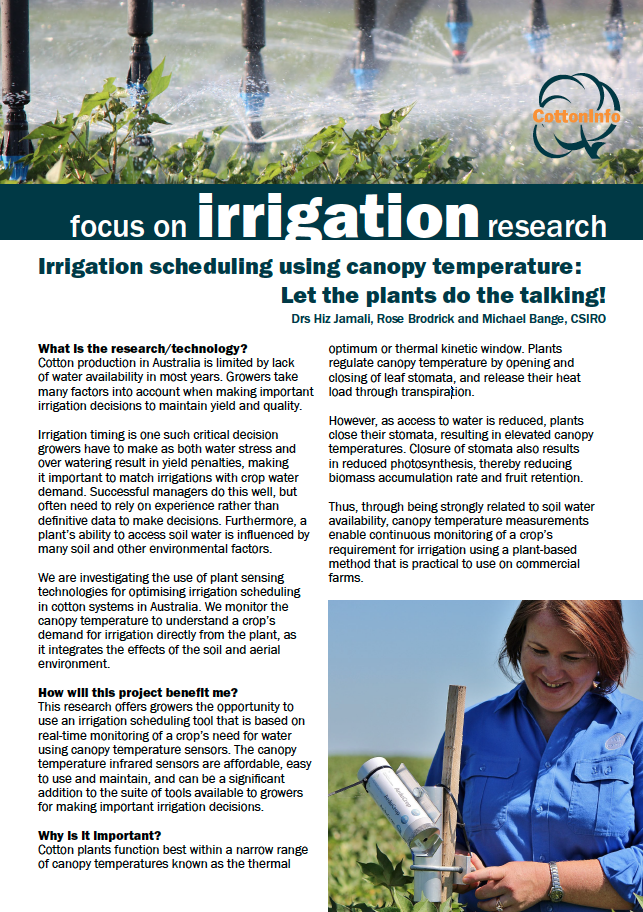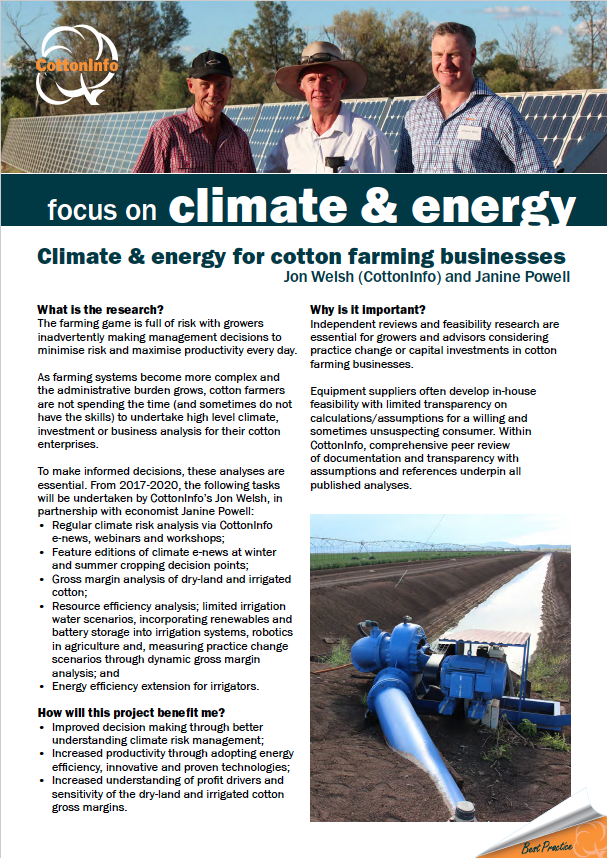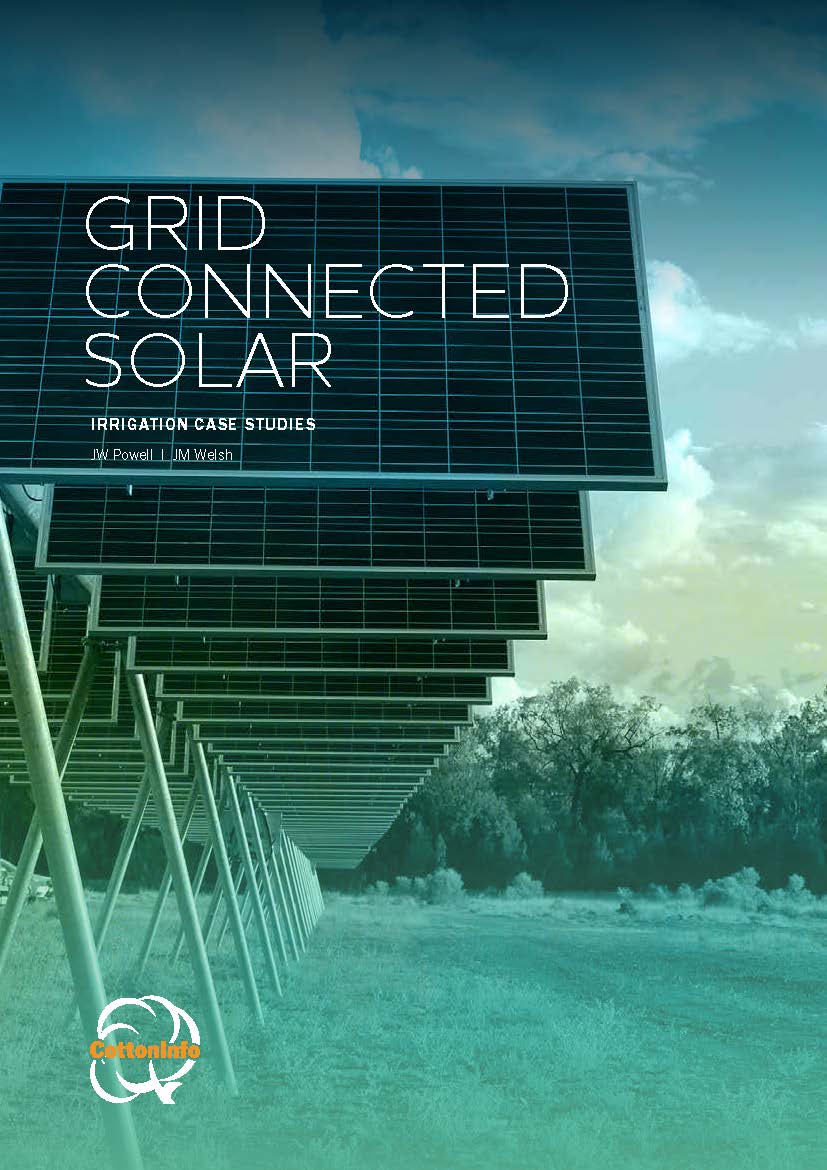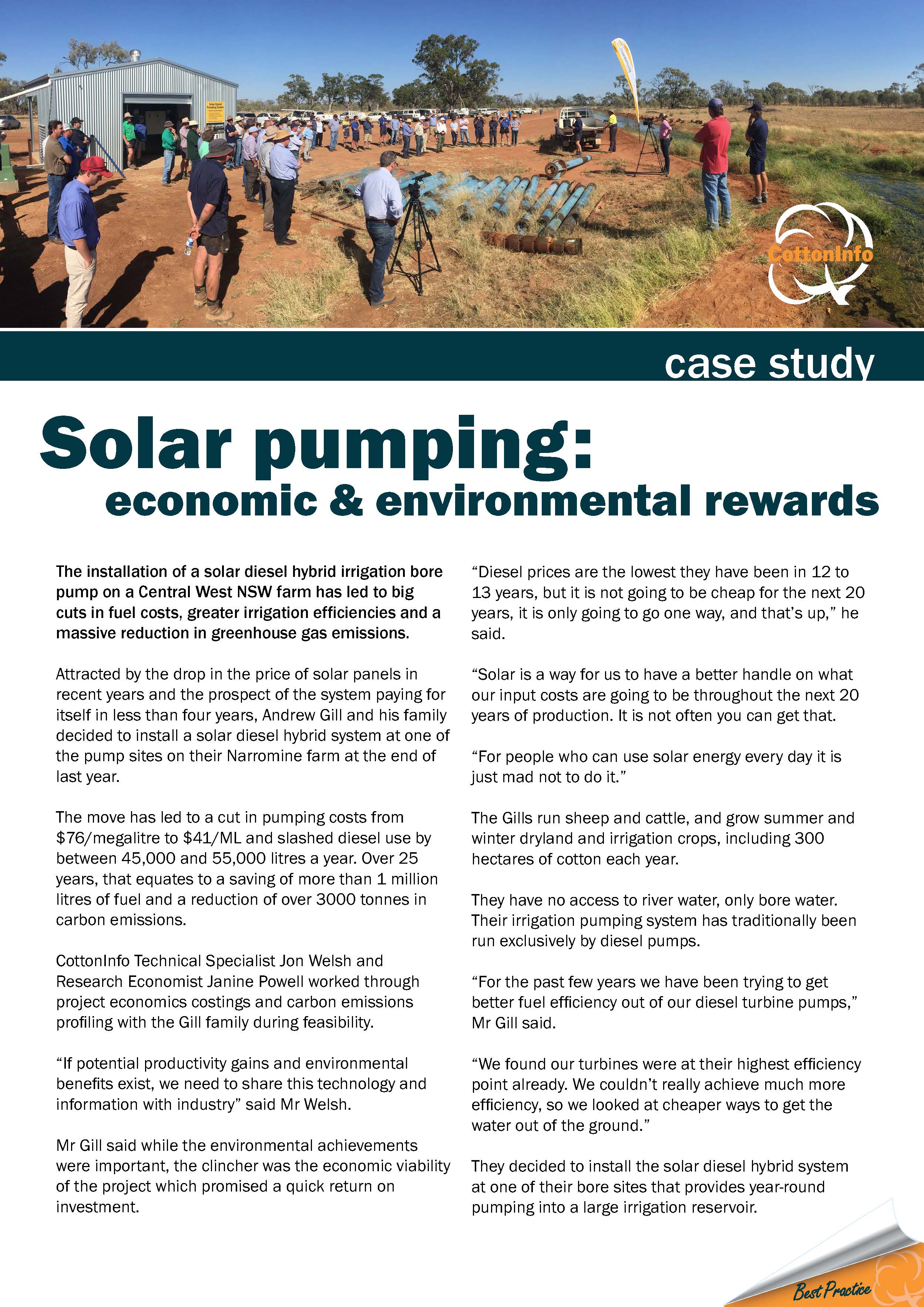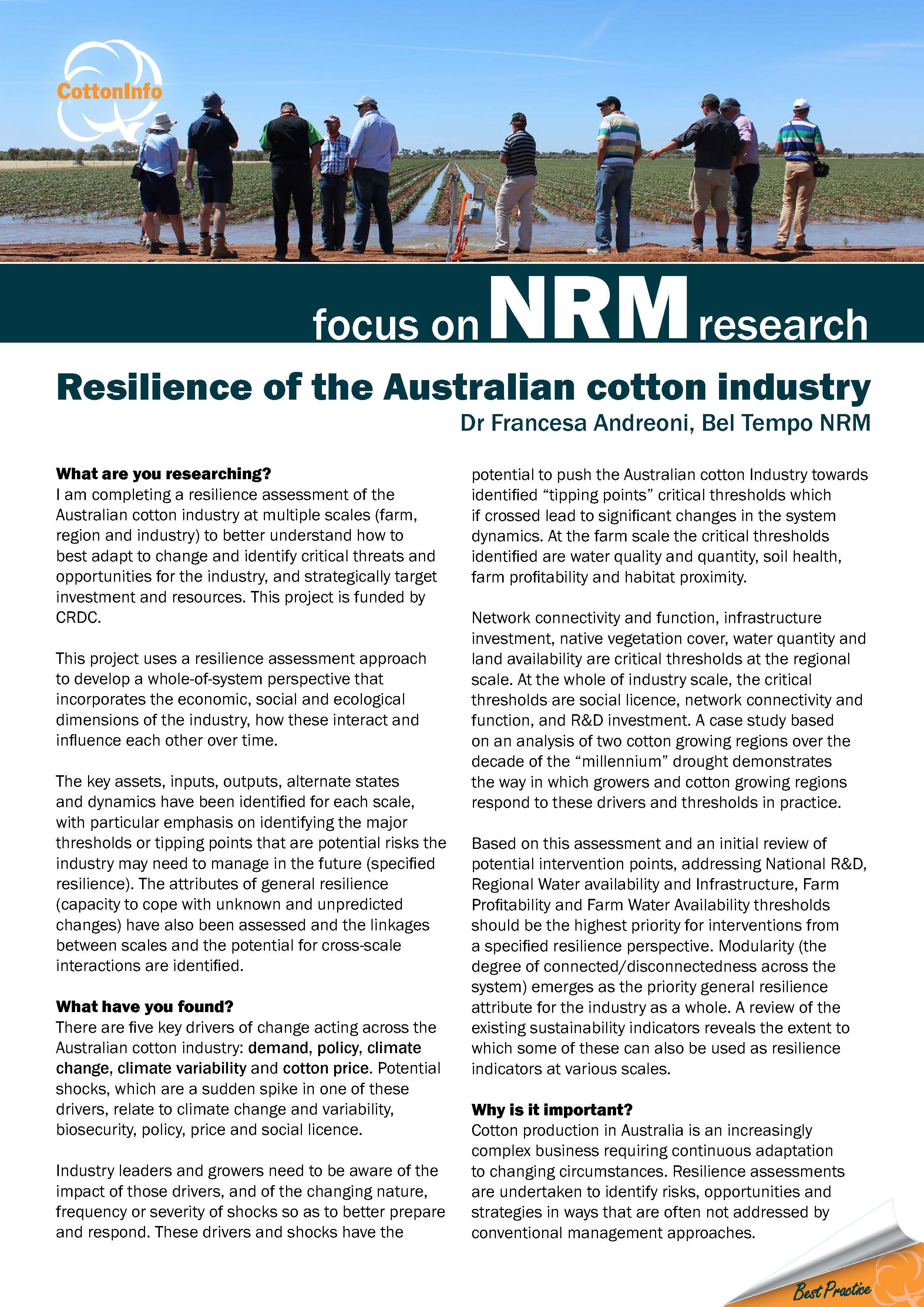The Focus on NRM research series introduces you to the key cotton NRM researchers and their work. In this case study, Sean Freney, Dr Erin Peterson, Dr Susan Fuller outline their research into the impact of remnant vegetation on bat activity.
The case study, conducted by AgEcon/CottonInfo's Jon Welsh and AgEcon's Janine Powell, was undertaken to consider the economic and environmental impact of installing microgrids to offset the energy use of surface water irrigation pumps and a small grain drying facility in the Fitzroy Valley
There are a range of ecosystem service benefits that flow from maintaining on-farm natural assets. Previous research has focused on the relationship of semi-natural vegetation providing individual ecosystem services, for example, biological control or pollination.
Read the results of a CRDC-supported study into the energy use of a QLD irrigator, including analysis on the farm's centre-pivot, river pump and grain-drying facilities, conducted by AgEcon/CottonInfo's Jon Welsh and AgEcon's Janine Powell.
Cover cropping is the process of growing a crop during a fallow period, creating ground cover that helps increase water infiltration, slow evaporation, improve soil carbon and soil mineral nitrogen, and protect the top soil.
The Focus on NRM research series introduces you to the key cotton NRM researchers and their work. In this case study, Dr Vesna Gagic talks about her research into the combined benefits that pollination and biological pest control have on cotton yield.
The increasing incidence of weeds that cannot be controlled with glyphosate is forcing a rethink on the range and diversity of weed management tactics used in cotton - with growers having to integrate a wider range of management tools.
The Focus on Irrigation research series introduces you to the key cotton irrigation researchers and their work.
This project summary outlines the CRDC-funded Climate and energy for cotton farming businesses project, run by CottonInfo's Jon Welsh and economist Janine Powell from 2017-2020.
This analysis determines the economic feasibility of installing solar energy to assist in reducing electricity consumption for irrigation bores.
The installation of a solar diesel hybrid irrigation bore pump on a Central West NSW farm has led to big cuts in fuel costs, greater irrigation efficiencies and a massive reduction in greenhouse gas emissions. Attracted by the drop in the price of solar panels in recent y
The Focus on NRM research series introduces you to the key cotton NRM researchers and their work.

